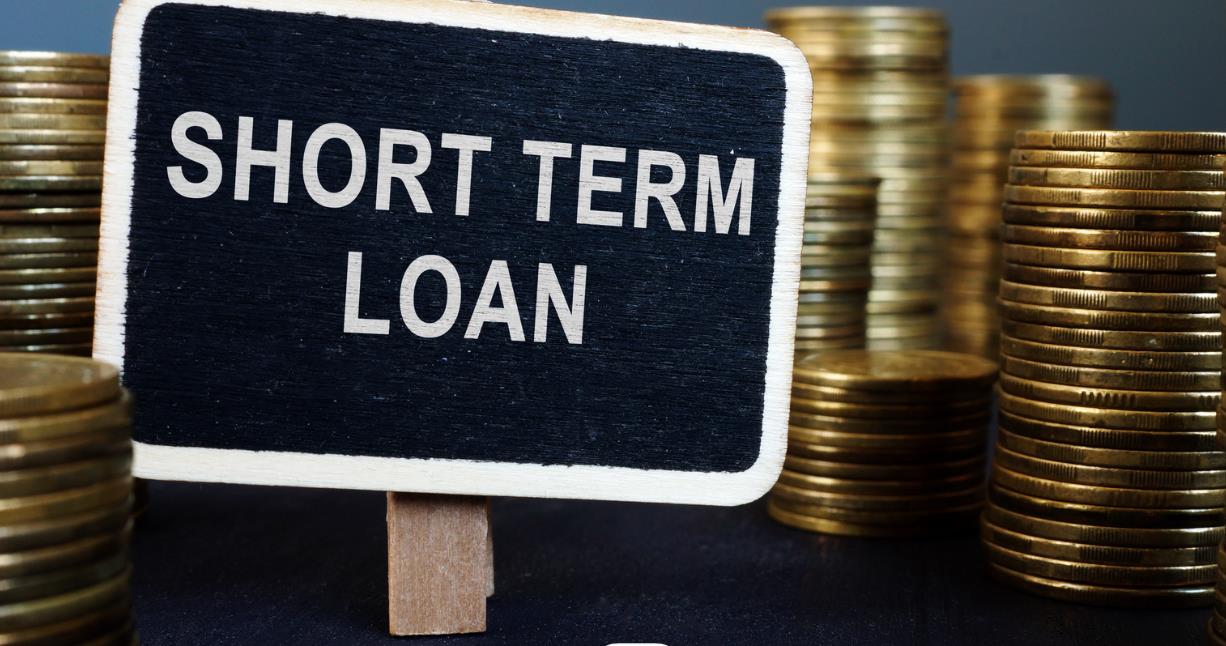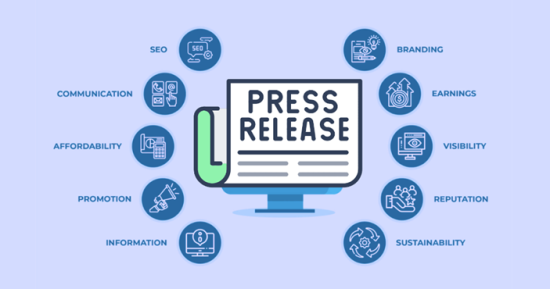
When life throws unexpected financial curveballs, short term personal loans can be a convenient solution to bridge the gap. These unsecured installment loans offer a lump-sum of funding with fixed repayment terms, typically ranging from 2 to 7 years. Whether you’re facing medical bills, home repairs, car issues, or unexpected travel costs, a short term personal loan can provide the quick cash you need to get back on track.
Lenders often have minimum credit score and maximum debt-to-income ratio requirements for these short term loans, but the best lenders can approve applications and disburse funds within a day or two. While short term personal loans may have slightly higher interest rates compared to longer-term options, they can be a valuable tool for those who need cash quickly and lack access to other financing alternatives.
From obtaining a personal loan for 3 months to finding the shortest personal loan option, or even exploring the possibility of a 1-month loan, short term personal financing offers a flexible and convenient solution to meet your pressing financial needs. Whether you’re searching for the best loan for short term requirements, investigating RBI-approved buddy loans, or seeking a bank that gives loans easily, this guide will provide the insights you need to make an informed decision.
What is a Short Term Personal Loan?

Definition and Characteristics
A short term personal loan is a type of unsecured installment loan that provides borrowers with a lump sum of cash that must be repaid over a relatively short period, usually 12 months or less. These short term personal loans are characterized by fixed interest rates and fixed monthly payments, allowing borrowers to budget and plan for the repayment. Short term personal loans are often used to cover unexpected expenses or bridge financial gaps until the next paycheck, and can range in amounts from $100 to $50,000 or more, depending on the lender and the borrower’s qualifications.
Reasons for Taking a Short Term Loan
Individuals may opt for a short term personal loan for a variety of reasons, including:
- Covering unexpected expenses: Short term loans can provide quick access to funds to handle emergency medical bills, car repairs, home repairs, and other unplanned costs.
- Bridging financial gaps: These loans can help borrowers cover expenses until their next paycheck or when other sources of funding become available.
- Consolidating debt: Short term personal loans can be used to pay off higher-interest debts, such as credit cards, and simplify monthly payments.
- Financing large purchases: Although not their primary purpose, short term loans can occasionally be used to finance major purchases, such as appliances or furniture, when cash is tight.
Benefits of Short Term Personal Loans
One of the primary benefits of short term personal loans is the speed at which borrowers can access the funds they need. Many lenders, especially online lenders, can approve applications and disburse funds within a day or two of the initial application. This rapid funding can be crucial for borrowers facing unexpected expenses or financial emergencies, allowing them to quickly address the issue at hand without having to wait weeks for a longer-term loan to be approved and funded.
Short term personal loans offer borrowers a range of loan amounts to choose from, providing flexibility to meet their specific financial needs. Loan amounts can typically range from as low as $100 up to $50,000 or more, depending on the lender and the borrower’s qualifications. This allows individuals to borrow the exact amount they require, whether it’s a small, short-term cash advance or a larger sum to cover a more significant expense. The flexibility in loan amounts is a key advantage of short term personal loans compared to other financing options.
Best Lenders for Short Term Personal Loans

When seeking a short term personal loan, it’s important to explore reputable lenders that can provide the best terms and options. Three top contenders in the short term loan market are PersonalLoans.com, Upgrade, and First Premier Lending.
PersonalLoans.com
PersonalLoans.com is an online marketplace that connects borrowers in need of quick cash with partner lenders. It stands out as a top option for short term personal loans due to its minimum loan amount of $250 and repayment terms starting at just 90 days. Once approved, borrowers may be able to receive funds as soon as the next business day. PersonalLoans.com offers loan amounts up to $35,000 and does not charge any fees to find loan offers, though the partner lenders may have their own origination or other fees.
Upgrade
Upgrade is another lender that offers short term personal loans, with loan amounts ranging from $1,000 to $50,000 and terms between 24 and 84 months. Upgrade may be a good option for borrowers with less-than-perfect credit, as it accepts applicants with a minimum credit score of 580. Upgrade loans come with fixed interest rates and no prepayment penalties, though they do have an origination fee of 1.85% to 9.99%. Borrowers can also apply with a co-signer to potentially improve their chances of approval or qualify for better terms.
First Premier Lending
First Premier Lending is a lender that specializes in providing short term personal loans, with a minimum loan amount of just $100 and a maximum of $20,000. This makes First Premier Lending a good option for those who need a smaller short-term loan to cover a minor expense. While the lender does not disclose its minimum credit score requirements, it offers interest rates that are on par with other online lenders for borrowers with good credit. First Premier Lending also allows borrowers to check rates without impacting their credit scores.
How to Get a Fast Personal Loan?
When seeking a fast personal loan, the first step is to compare rates and terms from multiple lenders. This allows borrowers to find the most favorable offer for their financial situation. Factors to consider when comparing lenders include the annual percentage rate (APR), loan amounts, repayment terms, fees, and any collateral or co-signer requirements. Using online loan calculators can help borrowers estimate their monthly payments and total interest costs under different scenarios. Taking the time to shop around can help ensure borrowers find the short term personal loan that best meets their needs.
Gather Required Documents
To apply for a fast personal loan, borrowers will need to gather several key documents, including:
- Government-issued photo ID (e.g., driver’s license or passport)
- Proof of income (e.g., pay stubs, bank statements, or tax returns)
- Proof of address (e.g., utility bill or lease agreement)
- Social Security number
- Bank account information (for direct deposit of loan funds)
Having these documents readily available can streamline the application process and help ensure a faster loan approval and funding.
Submit Application
After comparing rates and terms and gathering the required documents, the next step is to submit the loan application. Many short term personal loan lenders, especially online lenders, offer a quick and straightforward application process that can be completed in a matter of minutes. Borrowers will need to provide personal and financial information, such as their name, date of birth, address, income, and desired loan amount. Once the application is submitted, the lender will review the information and make a decision, often providing an instant approval or denial. If approved, the borrower can then proceed to review and sign the loan agreement, at which point the funds will be deposited into their bank account, typically within 1-2 business days.
Short Term Personal Loan: Quick Cash for Your Needs

Short term personal loans offer a convenient solution for individuals who need quick access to cash to address various financial needs. These loans provide borrowers with a lump sum of money, typically ranging from $100 to $50,000 or more, that must be repaid over a relatively short period, usually 12 months or less. Short term personal loans can be used to cover unexpected expenses, bridge financial gaps, consolidate debt, or finance large purchases when cash is tight.
The key benefits of these loans include the speed at which funds can be accessed, the flexibility in loan amounts, and the fixed interest rates and repayment terms that allow for predictable monthly payments. By carefully comparing lenders and considering their individual financial situations, borrowers can find a short term personal loan that meets their specific needs.
Alternatives to Short Term Personal Loans
While short term personal loans can be a useful financing option, there are also alternative solutions to consider. One alternative is using a credit card, which can provide a quick way to access funds for unexpected expenses or short-term needs. Credit cards often have lower interest rates than short term personal loans, especially for borrowers with good credit. However, credit cards may have higher variable interest rates and the potential for accumulating debt if not repaid quickly.
Borrowing from Family or Friends
Another alternative to a short term personal loan is borrowing money from family or friends. This option can be advantageous as it may not involve interest charges or formal application processes. However, it’s important to approach borrowing from personal connections carefully, as it can potentially strain relationships if the loan is not repaid as agreed.
Payday Alternative Loans
Payday alternative loans (PALs) offered by federal credit unions are another alternative to short term personal loans. PALs typically have lower interest rates and fees compared to traditional payday loans, with APRs capped at 28%. These loans are designed to provide a more affordable short-term borrowing option for those in need of quick cash. However, the loan amounts are generally smaller, with a maximum of $2,000, and the repayment terms are still relatively short, usually between one and six months.
Factors to Consider Before Taking a Short Term Loan
When considering a short term personal loan, it’s essential to carefully review the interest rates and fees associated with the loan. Short term loans often have higher interest rates compared to longer-term personal loans, as lenders view them as riskier. Borrowers should compare the annual percentage rate (APR) offered by different lenders to find the most affordable option. Additionally, lenders may charge origination fees, late fees, or other administrative fees, which can add to the overall cost of the loan. Understanding the total cost of borrowing is crucial when evaluating a short term personal loan.
Repayment Terms
The repayment terms of a short term personal loan are another important factor to consider. These loans typically have shorter repayment periods, ranging from a few months up to 12 months. While the shorter term can mean a higher monthly payment, it also results in less interest paid over the life of the loan. Borrowers should carefully assess their budget and ensure they can comfortably afford the monthly payments required by the short term loan they are considering.
Credit Impact
Taking out a short term personal loan can also have an impact on the borrower’s credit. While on-time payments can help build credit, missed or late payments can negatively affect a credit score. Additionally, the application process for a short term loan typically involves a hard credit inquiry, which can temporarily lower a borrower’s credit score. Borrowers should weigh the potential credit impact against the benefits of obtaining a short term loan to determine if it is the right financing option for their situation.
Emergency Loans: A Type of Short Term Personal Loan

Emergency loans are a specific type of short term personal loan that are designed to provide quick access to funds to cover unexpected expenses or urgent financial needs. These loans are often unsecured, meaning they are approved based on the borrower’s credit, income, and other financial information rather than requiring collateral. Emergency loans are typically installment loans, with fixed interest rates and repayment terms ranging from 2 to 7 years.
While emergency loan rates and fees can vary, they generally offer a more affordable alternative to high-interest options like payday loans. The speed and convenience of emergency loans make them a useful option for borrowers facing immediate financial challenges, such as medical bills, car repairs, or other unexpected expenses. These short term personal loans can provide the necessary financial assistance to bridge the gap until the borrower’s next paycheck or when other sources of funding become available.
Emergency loans are a type of short term personal loan that offer borrowers a way to quickly access funds to address urgent financial needs. With their fixed interest rates, repayment terms, and unsecured nature, these loans can provide a more affordable and convenient solution compared to high-cost alternatives like payday loans. The speed and flexibility of emergency loans make them a valuable financial tool for individuals facing unexpected expenses or temporary cash flow issues.
Tips for Managing Short Term Personal Loans
When taking out a short term personal loan, it’s important for borrowers to create a clear repayment plan. This involves determining a monthly payment amount that fits within their budget and setting reminders to ensure timely payments. Borrowers should also consider the total cost of the loan, including interest and fees, and factor that into their repayment strategy. By proactively managing the loan repayment, borrowers can avoid late fees, preserve their credit, and successfully pay off the short term loan.
Create a Repayment Plan
Borrowers should create a realistic repayment plan that takes into account their monthly budget and the total cost of the short term personal loan. This includes setting aside the necessary funds to make on-time payments and avoiding any potential late fees. By establishing a clear repayment strategy, borrowers can maintain financial stability and successfully pay off the short term loan.
Avoid Frequent Borrowing
While short term personal loans can be a useful financial tool, it’s important for borrowers to avoid the temptation of frequent or repeated borrowing. Relying too heavily on short term loans can lead to a cycle of debt, as the high interest rates and fees can make it challenging to pay off the loans in a timely manner. Borrowers should instead aim to build up emergency savings to cover unexpected expenses, reducing the need for short term financing. If a short term loan is necessary, it should be used judiciously and repaid as quickly as possible to maintain financial stability.
Short Term Loans for Bad Credit

Individuals with poor credit scores may still be able to obtain a short term personal loan, though the options and terms may be more limited. One potential option is a secured loan, where the borrower pledges an asset, such as a car or a savings account, as collateral. The collateral helps mitigate the lender’s risk, potentially allowing them to offer the loan to borrowers with lower credit scores. However, it’s important to note that if the borrower defaults on the loan, the lender has the right to seize the collateral.
Secured Loans
Secured short term personal loans can be a viable option for those with bad credit. By offering collateral, borrowers can demonstrate their commitment to repaying the loan and potentially access better terms, such as lower interest rates or higher loan amounts. However, it’s crucial to fully understand the risks, as defaulting on a secured loan could result in the loss of the pledged asset.
Co-signers and Joint Applications
Another way for borrowers with bad credit to obtain a short term personal loan is by applying with a co-signer or as a joint applicant. A co-signer is someone who agrees to be equally responsible for the loan repayment, which can improve the chances of approval and potentially result in better loan terms. A joint application, where two individuals apply for the loan together, can also be beneficial, as the lender will consider the combined credit profiles and income of both applicants. However, it’s essential that both the borrower and co-signer or joint applicant fully understand the risks and responsibilities involved.
By exploring options like secured loans or co-signing, individuals with poor credit may still be able to access the short term financing they need, though the terms and requirements may be more stringent. Careful consideration of the pros and cons, as well as a commitment to responsible borrowing, can help ensure a successful short term loan experience for those with bad credit.
Responsible Use of Short Term Personal Loans
When utilizing a short term personal loan, it’s crucial to approach it responsibly. This includes borrowing only the minimum amount necessary to address the immediate financial concern, creating a realistic repayment plan, and making timely payments to avoid late fees and negative impacts on your credit. Responsible use of short term loans involves avoiding the temptation of frequent borrowing, as this can lead to a cycle of debt.
Instead, borrowers should aim to build up emergency savings to reduce the need for short-term financing. By using short term personal loans judiciously and making timely payments, individuals can benefit from the convenience and flexibility these loans provide without risking their long-term financial stability. Following these guidelines for the responsible use of short term loans can help ensure a positive borrowing experience.
In conclusion, Short term personal loans can be a valuable financial tool for individuals who need quick access to funds to address unexpected expenses or bridge temporary financial gaps. By understanding the benefits, considerations, and responsible use of these loans, borrowers can leverage them effectively to meet their short-term financial needs without compromising their long-term financial stability.
As with any financial product, it’s crucial for borrowers to carefully evaluate the interest rates, fees, and repayment terms associated with short term personal loans. By creating a realistic repayment plan and avoiding frequent borrowing, borrowers can ensure they use these loans in a responsible manner and avoid the risk of falling into a cycle of debt.
Whether facing an emergency, consolidating high-interest debts, or financing a large purchase, short term personal loans can provide a convenient and flexible solution for those in need of quick cash. By weighing the pros and cons and utilizing these loans judiciously, borrowers can leverage the benefits of short term personal loans to achieve their financial goals while maintaining a healthy financial foundation.
FAQ: Short-Term Personal Loan
What are the benefits of a short term personal loan?
The benefits of a short-term personal loan include faster approval times, quick access to funds, and a shorter repayment period, which can reduce the total interest paid.
What are the common uses for a short-term personal loan?
Common uses for a short-term personal loan include covering emergency expenses, medical bills, car repairs, or minor home improvements.
Are interest rates higher for a short-term personal loan?
Yes, interest rates on short-term personal loans can be higher than those on long-term loans, reflecting the increased risk and convenience of quick funding.
How can I qualify for a short-term personal loan?
To qualify for a short-term personal loan, you generally need a stable income, a good credit score, and the ability to demonstrate your capacity to repay the loan quickly.






